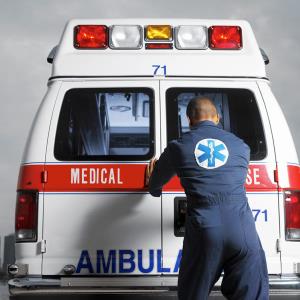
All children have the right to a safe environment. Here are some important tips from The Child Accident Prevention Foundation:
Childhood injury in South Africa is an unrelenting public health problem of epidemic proportions. Each day more than 10 children under the age of 15 years die of Motor Vehicle Accidents, Drowning, Poisoning, Burns, Violence and other physical hazards present in an environment created by adults.
Injuries destroy the health, lives and independence of thousands of children, yet prevention of injuries receives scant attention.
At the Red Cross Children’s Hospital alone, more than 10 000 children were treated in one year for various injuries, including poisoning and drowning.
More than 75% of accidents suffered by children occur in the home. This is exactly where children should feel safest and if they don’t, how then can they expect to face the world outside with any confidence.
From an economic perspective, childhood injuries presently impose a far greater financial burden on the health system compared to other diseases, which have more successfully penetrated the national consciousness.
The following are just some of the safety messages that CAPFSA would like to emphasize:
Road accidents
Thousands of children under nineteen die on South African roads annually of pedestrian, passenger and cycling injuries. Motor vehicle injuries are the major cause of unnatural deaths in children.
Some road rules
- Children under the age of 8 years are not safe to enter the road on their own as pedestrians and should always be supervised on the road.
- All children should be buckled up in motor vehicles for every trip short or long. Car seats or seat belts should be used correctly to provide adequate safety. It is not safe for an unrestrained child to travel in a car.
- Cyclists should wear helmets at all times. In the event of an accident, wearing a helmet reduces the risk of head injury by 85%.
- Reflective clothing makes child pedestrians easier for motorists to see, and can help in avoiding accidents.
Drowning
It is estimated that more than one child drowns in South Africa every day. Most drownings occur in rivers and dams, followed by swimming pools.
Water safety:
- Always supervise small children near water even if they can swim.
- Swimming pools should be fenced or covered with a safety net.
- Never leave small children alone in the bath and always empty nappy buckets or close firmly with a lid. Too many children have drowned in buckets filled with water.
- Children should learn to swim as soon as possible and also be taught water survival skills.
Burns
A burn takes a second to occur but a lifetime to heal. When children are seriously burnt they might require multiple surgeries over extended periods of time, and have to deal with the consequences of possible lifetime disfigurement.
The Red Cross Children’s Hospital annually treats an average of 900 children for burn injuries. The majority of these accidents could have been prevented. Most frequently, burns in children occur with hot fluids such as water, oil, food, coffee and tea etc.
Some safety precautions
- Never handle small children and hot substances at the same time.
- Place paraffin appliances on a stable, safe, out of reach area.
- Always guard open fires.
- Always put the cold water in the bath first and then add the hot water.
- Set your hot water cylinder to a safer temperature of 50 degrees Celsius.
- Keep pot handles pointing to the back of the stove.
- Keep electrical cords out of reach of small curious children.
- Teach children not to experiment with fire, matches or lighters.
- If your clothing catches fire, we need to Stop, Drop and Roll to put out the flames.
- In the event of a burn injury, cool the burn with cool water from the tap for 15 minutes.
Poisoning
Storing medication, paraffin or household cleaning substances within the reach of children is the cause of most poisoning incidences.
Children under the age of five years are particularly vulnerable to poisoning accidents. Caregivers should therefore store dangerous substances out of reach in a locked cupboard or in child resistant containers if available.
Remember to:
- Always read labels and dosage instructions on medication.
- Always use a child resistant closure (safety cap) on your paraffin, petrol and turpentine containers.
- Never store poisonous substances with food.
- Know what to do in the event of an emergency and keep the number of the nearest poisons information centre next to the phone.
Falls
More than 40% of injuries treated at the Red Cross Children’s Hospital are due to falls. Fortunately a lot of these falls are minor events however some have been fatal. Most of these injuries can be prevented with a bit of forethought.
Preventing falls
- Babies should never be left alone on any high surface such as a changing table or bed.
- Be aware of playground safety. Too many children are injured falling from playground equipment.
- Use safety gates on stairs.
The Child Accident Prevention Foundation asks you as parents, caregivers, and community members to join us in our efforts to prevent unnecessary childhood injuries and to help keep our children safe and happy. They are our greatest and most precious assets.
Remember prevention is better, easier and cheaper than cure. Families can do it together and keep children safe!
For more information contact Nelmarie du Toit at CAPFSA, on 021 6855208.
Free safety leaflets on the prevention of childhood accidents are available from our Foundation. Our contact details are:
CAPFSA; P. O. Box 791; Rondebosch; 7701
Tel: 021 6855208 Fax: 021 685 5331
E-mail: capfsa@pgwc.gov.za
Website: http://www.childsafe.org.za




 Publications
Publications
 Partners
Partners










